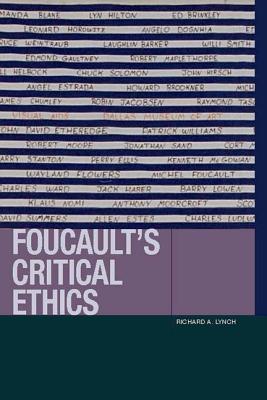
Foucault's Critical Ethics
2016
First Published
3.33
Average Rating
248
Number of Pages
Part of Series
The central thesis of Foucault's Critical Ethics is that Foucault's account of power does not foreclose the possibility of ethics; on the contrary, it provides a framework within which ethics becomes possible. Tracing the evolution of Foucault's analysis of power from his early articulations of disciplinary power to his theorizations of biopower and governmentality, Richard A. Lynch shows how Foucault's ethical project emerged through two interwoven trajectories: analysis of classical practices of the care of the self, and engaged practice in and reflection upon the limits of sexuality and the development of friendship in gay communities. These strands of experience and inquiry allowed Foucault to develop contrasting yet interwoven aspects of his ethics; they also underscored how ethical practice emerges within and from contexts of power relations. The gay community's response to AIDS and its parallels with the feminist ethics of care serve to illustrate the resources of a Foucauldian ethic—a fundamentally critical attitude, with substantive (but revisable) values and norms grounded in a practice of freedom.
Avg Rating
3.33
Number of Ratings
3
5 STARS
33%
4 STARS
0%
3 STARS
33%
2 STARS
33%
1 STARS
0%
goodreads

